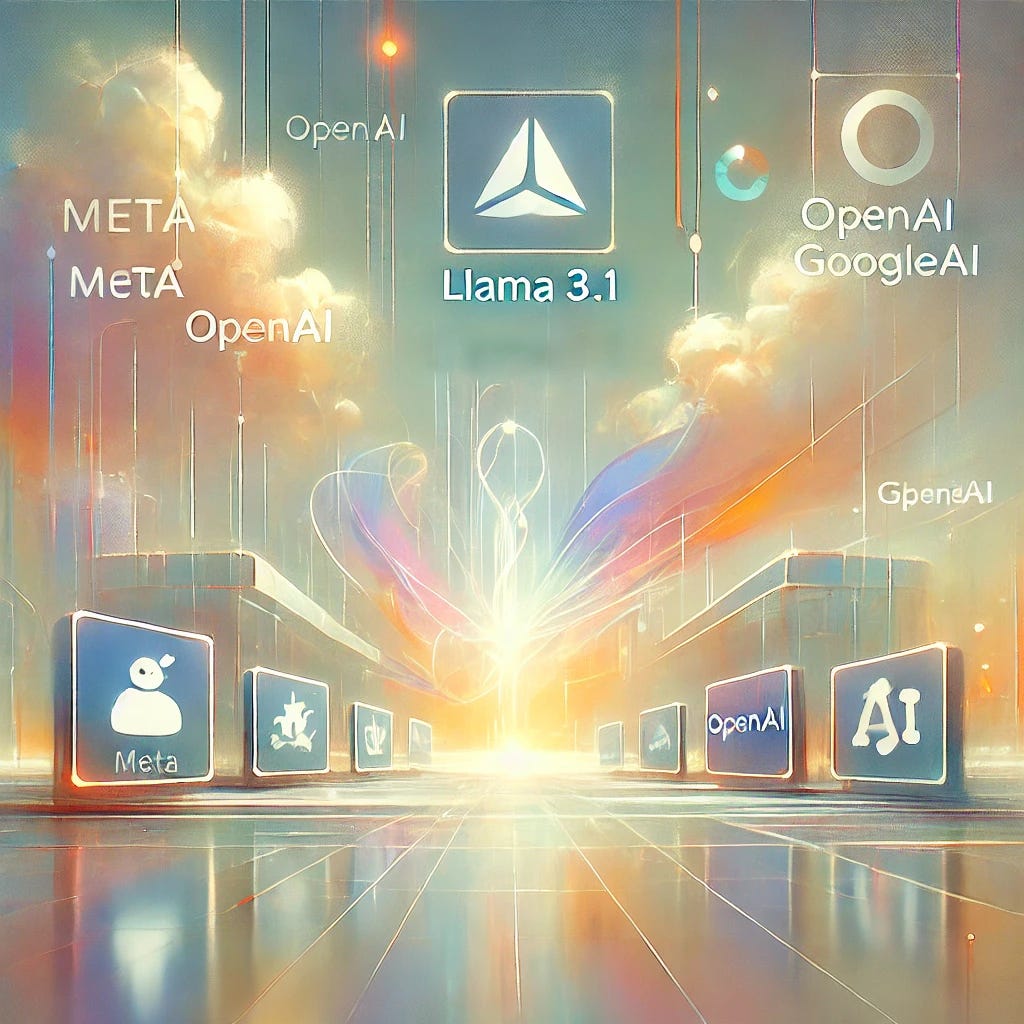Mark Zuckerberg Unveils Llama 3.1: A New Era for Open-Source AI?
Direct Challenge to ChatGPT of OpenAI and GoogleAI's Gemini.
Meta Unveils Llama 3.1
On Tuesday, 23rd July, Meta introduced Llama 3.1, its most advanced open-source AI model to date. According to Mark Zuckerberg, Founder and CEO, "Open Source AI Is the Path Forward", indirectly hitting out at OpenAI which, despite its name and original mission, has made its flagship product ChatGPT4 zealously closed-source. The unveiling marks a significant milestone for Meta in the AI landscape, with Llama 3.1 being described as “state of the art.” Here, we delve into the key aspects and implications of this groundbreaking release.
Llama 3.1 vs Other Leading AI Models
Bilawal Sidhu, our Honorary Tech Adviser based in Austin, Texas, succinctly summarised the new launch as Zuckerberg's AI strategy in a nutshell:
Free frontier model for developers
Undercut closed-source rivals
Bypass cloud wars; instead, monetize business and creator agents
Harvest fresh data and content for the Meta ecosystem
Profit
Meta’s Claims About Llama’s Capabilities
Meta’s flagship Llama 3.1 405B model, boasting 405 billion parameters and officially described by Meta as “our most capable model to date,” stands out for its capabilities and performance:
Competitive Edge: Llama 3.1 competes with top-tier AI models such as OpenAI's GPT-4, Anthropic's Claude 3.5 Sonnet, and Google's Gemini. It excels across tasks involving general knowledge, steerability, math, tool use, and multilingual translation.
Benchmark Performance: Meta's benchmarks indicate that Llama 3.1 405B outperforms these larger, proprietary systems in areas like coding, math, reasoning, long context, and multilingual capabilities.
Optimization Focus: Despite having fewer parameters than GPT-4's estimated 1.8 trillion, Llama 3.1's optimized training delivers competitive results.
Benefits for Users and Developers
Llama 3.1 opens new avenues for innovation and application:
Developer Opportunities: The openly available models foster unprecedented innovation, enabling synthetic data generation to improve smaller models and model distillation on a grand scale. Developers can create advanced chatbots, tools with enhanced reasoning, and superior coding assistants.
End-User Advantages: For end-users, Llama 3.1 will enhance Meta’s AI assistant and integrate into products like WhatsApp, offering improved AI features.
License Flexibility: Meta’s revised licensing allows developers to use Llama's outputs to improve other models, potentially leading to more powerful narrow AI applications.
Impact on Meta and Open-Source AI
Llama 3.1 represents a significant shift towards open-source AI as a standard:
Strategic Vision: Zuckerberg envisions a future where most developers rely on open-source models, with Llama 3.1 marking a critical inflection point.
Meta's Open-Source Commitment: Embracing open-source AI ensures Meta remains at the forefront of technology without being restricted by a closed ecosystem, facilitating the development of superior services and products.
Ecosystem Growth: By open-sourcing Llama 3.1, Meta aims to cultivate a broader ecosystem, inviting developers and partners to extend its functionality and applications.
Alignment with Business Model: Unlike other tech giants, Meta’s business model does not depend on selling AI models, aligning open-sourcing with their strategic goals.
In Summary and Looking Forward
Llama 3.1 highlights Meta's ambition to democratise access to cutting-edge AI capabilities. By making such a powerful model open-source, Meta aims to drive innovation, enhance its own products and services, and set a precedent for open-source AI in the industry. However, the space frequently sees new innovations and challengers, such as Groq, founded by an ex-Google engineer1, receiving rave reviews. Despite the model's massive scale, raising concerns about computational demands, energy consumption, and accessibility, these issues must be addressed moving forward. Whether one model or an oligopoly of a few models will ultimately dominate is too early to tell, but we can safely predict that consumers will continue to receive better and better products in the weeks and months to come.
Headquartered in Mountain View, California, Groq is an AI company founded in 2016 by former Google engineers, including Jonathan Ross who helped design Google's Tensor Processing Unit (TPU).






